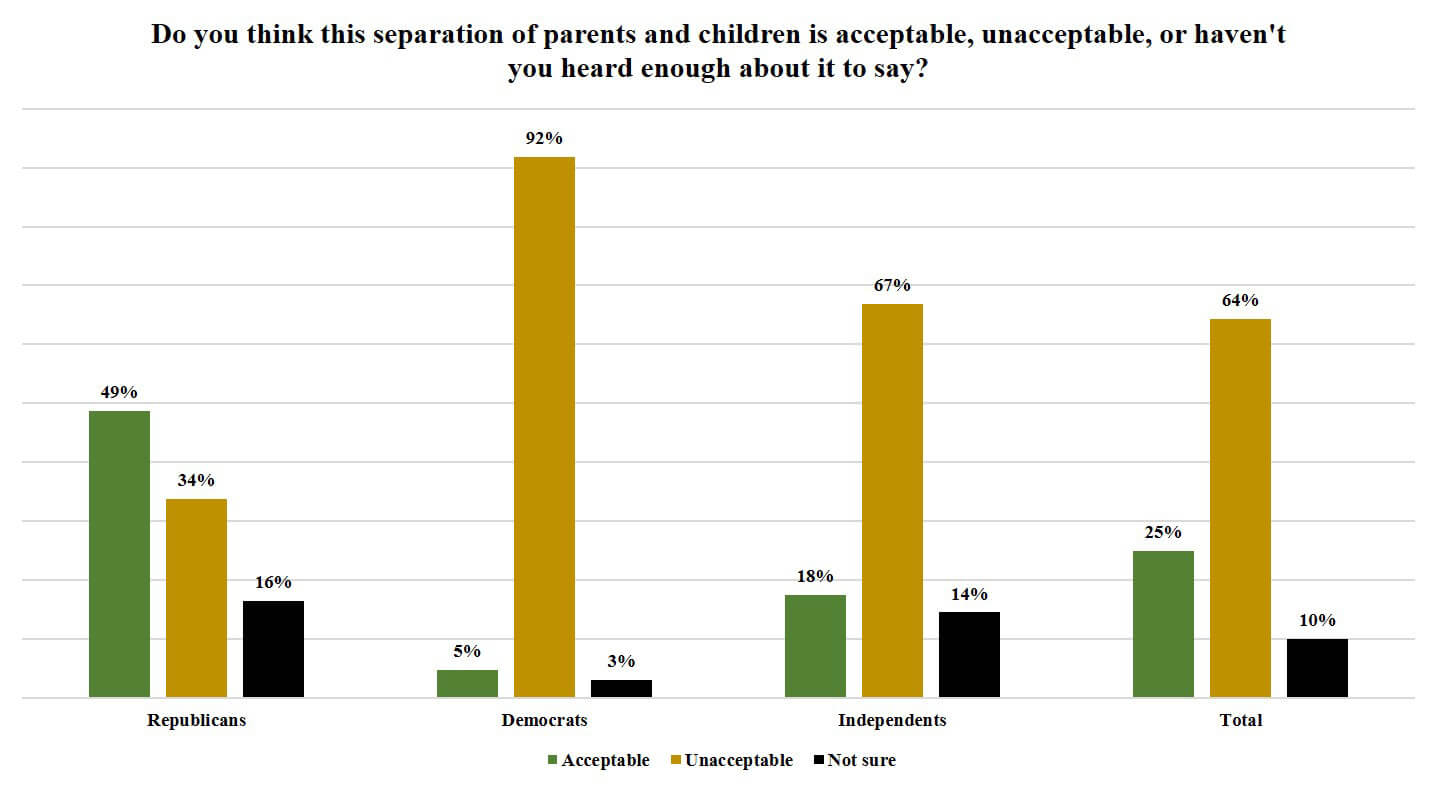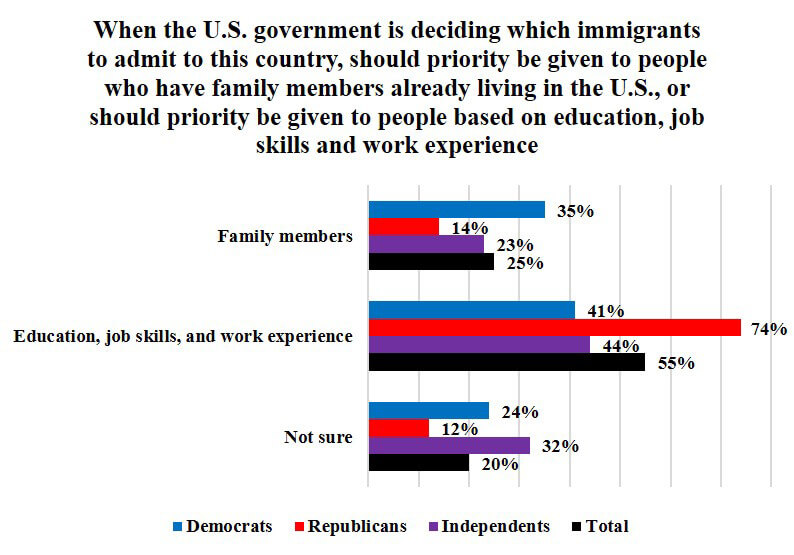- July 29, 2019
- By Laura Ours
While immigration policy remains a polarizing issue, nearly two-thirds of Americans oppose the practice of family separation at the U.S.-Mexico border, but a majority of 'strong' Republicans find the practice acceptable, according to a new UMD study.
The University of Maryland Critical Issues Poll study, led by Professors Shibley Telhami and Stella Rouse, was conducted online March 15–April 2 with Nielsen Scarborough to shed light on American attitudes toward policies and scenarios related to immigration and refugees. It included 3,015 respondents, with a margin of error of +/- 1.78%.
Overall, 49% of Republicans said family separation is acceptable, and 34% said it is not. Among Democrats, 92% said family separation is unacceptable, and 5% said it is.
On the issue of family separation, partisanship trumps faith on evangelical responses, as evangelical and non-evangelical Democrats and Republicans answer at almost identical rates. For example, 92% of evangelical Democrats find the practice unacceptable, and 91% of non-evangelical Democrats feel the same. The same trend is seen when comparing Catholics to those who are not religious.
“One notable result on the issue of family separation is that partisanship weighs much more heavily than faith on evangelical responses as evangelical and non-evangelical Republicans and Democrats answer at nearly identical rates,” said Telhami, director of the Critical Issues Poll.
Respondents value education/job skills of immigrants over their family connections
When asked if the U.S. government should give priority to immigrants who have family members already living in the U.S., or based on immigrants’ education, job skills and work experience, most respondents (55%) chose the latter, with 74% of Republicans selecting this answer. Pluralities of both Democrats and independents also answered this way.
Rouse, associate director of the Critical Issues Poll, noted that this was one of the few issues in the survey that transcends partisan lines.
The value placed on the capacity of immigrants to make a contribution to American society could be rooted in economic concerns. Compared to a poll conducted by the Sadat Chair in 2016, Americans are now more concerned about the economic burden of refugees than they are about terrorism (52% vs. 31%). In 2016, those numbers were 41% and 46%, respectively.
Responses show acceptance of Middle Eastern refugees has grown since 2016
The number of respondents who think that refugees from the Middle East would be welcomed in their state or community jumped 8 percentage points since the poll was conducted in 2016.
Republicans have become more likely to say that refugees from the Middle East would be welcomed (55% in 2019 compared to 48% in 2016). This is also true for Democrats—who are 10 percentage points more likely to feel this way in 2019—and independents, who also experienced an eight percentage-point increase.
On the other hand, Americans have become less open to refugees from the Middle East specifically during the last three years (30% to 23%). When compared to other regions of the world, including Central America, Africa and East Asia, Americans’ degree of openness toward refugees from the Middle East was the lowest (only 23% selected options around “being very open”). This is a seven percentage-point drop from 2016.
The poll addressed other issues related to immigration and refugees such as the building of a wall at the southern border, primary sources for political information and estimations of refugee arrests over terrorism charges.
Topics
Research